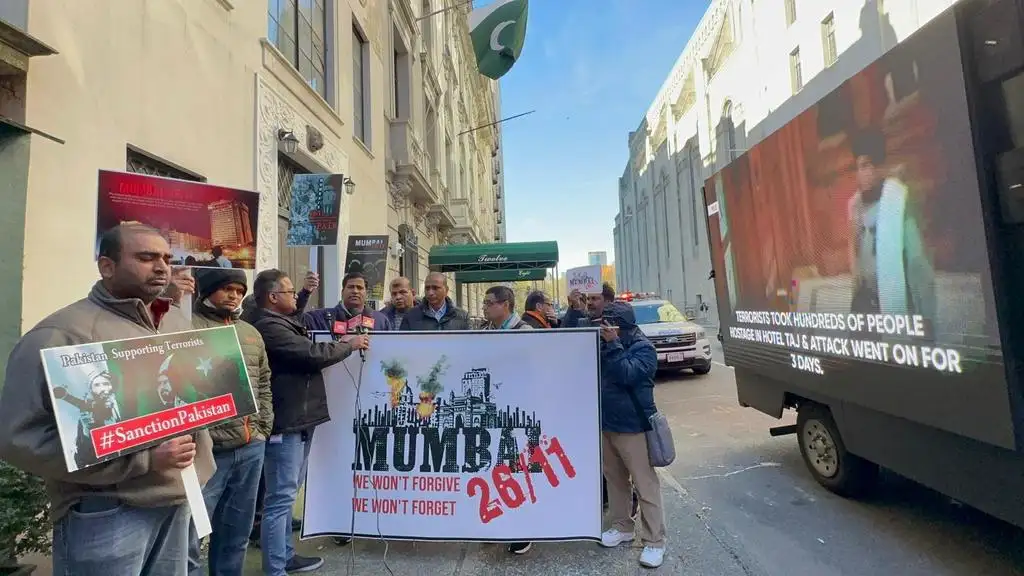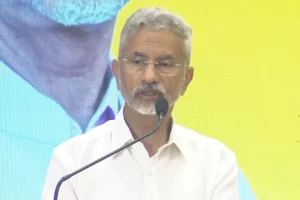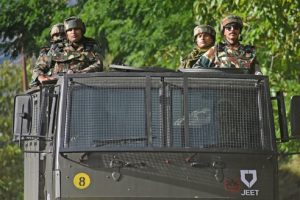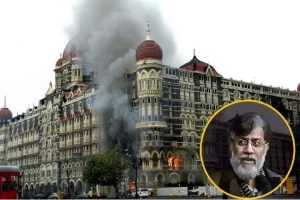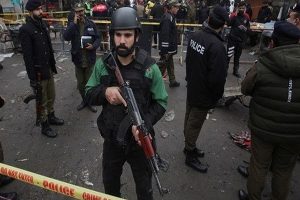Indian Americans launched a blitzkrieg of high-voltage protests on Saturday in the US, highlighting Pakistan’s role in the deadly 26/11 Mumbai terror attacks. They demonstrated not only in front of the Pakistani consulate in New York but also at Islamic centres in other US cities – Houston, Chicago and New Jersey.
The diaspora also hired digital media trucks with messages “Never Forget 26/11”, “The bloodbath The brutality”, “Kasab the face terror of 26/11” and “sanction Pakistan” to remind the world that Pakistan harbours and trains terrorists against citizens of other countries.
1/5.
Digital media trucks showing the messages #NeverForget 26/11 in five major states of #USA
Protest at Pakistan consulate #NewYork #PakistanSponsoredTerrorism #UnitedAgainstTerrorism @ndtv @ians_india @indiatvnews @Voice_For_India @IndicSociety @vijayvaani @AsYouNotWish pic.twitter.com/A2xWTugbWi— Zafar Sahito (@widhyarthi) November 26, 2022
The unprecedented 26/11 protests by Indian Americans across US cities followed protests in other parts of the world – the Netherlands, Japan and Britain. The protests were organised to highlight the fact that terrorists who planned the brutalities have not been punished and remain under the protection of the Pakistani army.
In one of the most brutal cross-border attacks perpetrated on India, 10 Pakistani terrorists of the Lashkar-e-Taiba (LeT) entered Mumbai on 26 November 2008 and attacked five landmarks in India’s financial capital. In nearly four days of gun and grenade attacks, they killed 166 people and injured around 300 including the city’s Jewish community.
India Narrative spoke with one of the organisers of the protests in the US.
Zafar Sahito, the Chief organiser of the Jeay Sindh Freedom Movement (JSFM) said: “The attack on Mumbai was not a simple act of terrorism but an engineered plan carried out by Pakistani state, state agencies and their hired Islamist terrorist organisations. There are possibilities that Pakistani sponsored terrorism will reach other countries when their supporters – the Taliban, are occupying a whole country, Afghanistan, also”.
Sahito underlines an oft-repeated fear that State-sponsored terrorism from Pakistan has the scope to singe other nations apart from its close neighbours India and Afghanistan.
We stand with you, #India, remembering sadly the 166 #MumbaiAttacks victims, their families and those who still bear the scars from that infamous 26.11.2008. #Mumbai2611 pic.twitter.com/eyhSBe1Y6a
— Daniel Carmon🇮🇱 (@danielocarmon) November 26, 2022
For India, the protests in the US are significant for two reasons.
The protests are a reminder to the US that one of its nationals David Coleman Headley, also known as Daood Sayed Gilani, was trained in Pakistan to carry out terror activities across the world. One of those terror activities was the 26/11 Mumbai attacks. Headley’s interrogation by American and Indian authorities revealed the role of Pakistan spy agency Inter-Services Intelligence (ISI) in the attacks.
The other significant reason for remembering the attacks is the kids gloves that the US treats Pakistan with. Just last month Pakistan was let off the Grey List by the Financial Action Task Force (FATF) which monitors nations over terror financing and promoting terrorism. The Joe Biden administration is moving close to Pakistan in a u-turn of former US president Donald Trump’s policy of dumping Pakistan over its duplicity in the war against terror.
Out of the FATF watchlist, and with a favourable dispensation in Washington, Pakistan could be again priming its terror apparatus, particularly against India. New Delhi has already noted that Pakistan has doubled the delivery of ammunition, weapons, narcotics and even cash through drones this year with a view to fomenting violence and trouble in India’s border states Punjab and J&K.
5/5
Brooklyn #NewYork #UnitedAgainstTerrorism #NeverForgiveNeverForget
26/11 pic.twitter.com/e0azzUSCWf— Zafar Sahito (@widhyarthi) November 26, 2022
India, which has pursued Pakistan with hard evidence, has not been able to make Islamabad take action against the masterminds of the Mumbai attacks as well as other terror operatives living on Pakistani soil. Architects of the Mumbai attack–Hafiz Saeed, Maulana Zakiur Rehman Lakhvi and Sufayan Zafar remain ensconced in the safety net of Pakistan. China too has been blocking India in the UN Security Council (UNSC) from taking action against terror leaders.
26/11 is the right time for India to up the ante against Pakistan and its policy of State terror. And, no better place than the US which nurtures a soft corner for Pakistan.
Also Read: Why are we protesting outside the Pakistani high commission in London?






